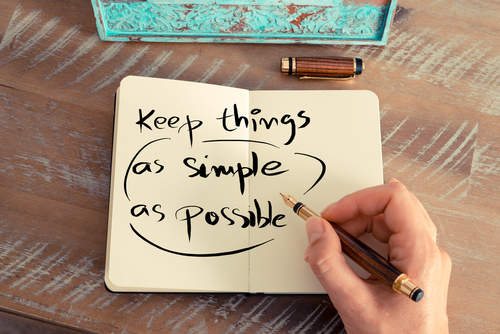Self-complexity is a theory about how we define ourselves, more specifically, how many ways, or how complexly, we define ourselves. According to Science of Us, “It’s the idea that if you have many different self-definitions, you’ll be more psychologically stable than if you have only a few, or only one, way of defining yourself”. The idea is that when you have a complex sense of self, meaning you’re aware that you are more than nothing or just one or two things, you are more stable in your idea of self. That way when someone throws criticism or hurtful words your way, you aren’t reduced to nothing because you know and believe you are more than nothing. You have a solid idea of who you are to yourself and to others. Who you are to one person who doesn’t like you doesn’t matter. The more complex you are, some studies have found, the more resilient you are to criticism and hurt in life. However, the less complex you are, the more willing you might be to change and adapt when someone points that out.
In recovery we maintain a philosophy about keeping things simple. It’s a phrase you hear all the time in the rooms of twelve step meetings and treatment centers. Recovering addicts and alcoholics have a way of complicating things beyond necessity and taking the complications they create for themselves far too seriously. Drinking and using drugs, for example, can be either complicated or simple. When we complicate the idea of drinking and using we get caught up in a web of reasons and stories from the past, anxieties of the future, and instant gratifications of the present. On the other hand, when we simplify it, we realize it is a very simple choice of yes or no: pick up, or don’t pick up. To keep it simple, we focus on never picking up, no matter what happens in our day. That is because, in part, our roles and selves in recovery become increasingly complex. We are a sober person, we are a sponsor, a mentor, a sponsee, a mentee, a secretary, someone with a commitment, a friend, and ally. Who we are in recovery helps us be who we are in other areas of our lives differently. We don’t have to just be an addict or an alcoholic, despite how we introduce ourselves at meetings. We get to be family members, friends, employees, strangers, compassionate, empathetic, leaders, mentors, and more. It’s simple.
Through our experiential programs focused on adventure learning and nature immersion, clients in the LEAD Recovery Center transitional care programs gain life lessons through challenging adventures to promote independent healthy lifestyles and autonomy in recovery. Call us today for information: 800-380-0012


